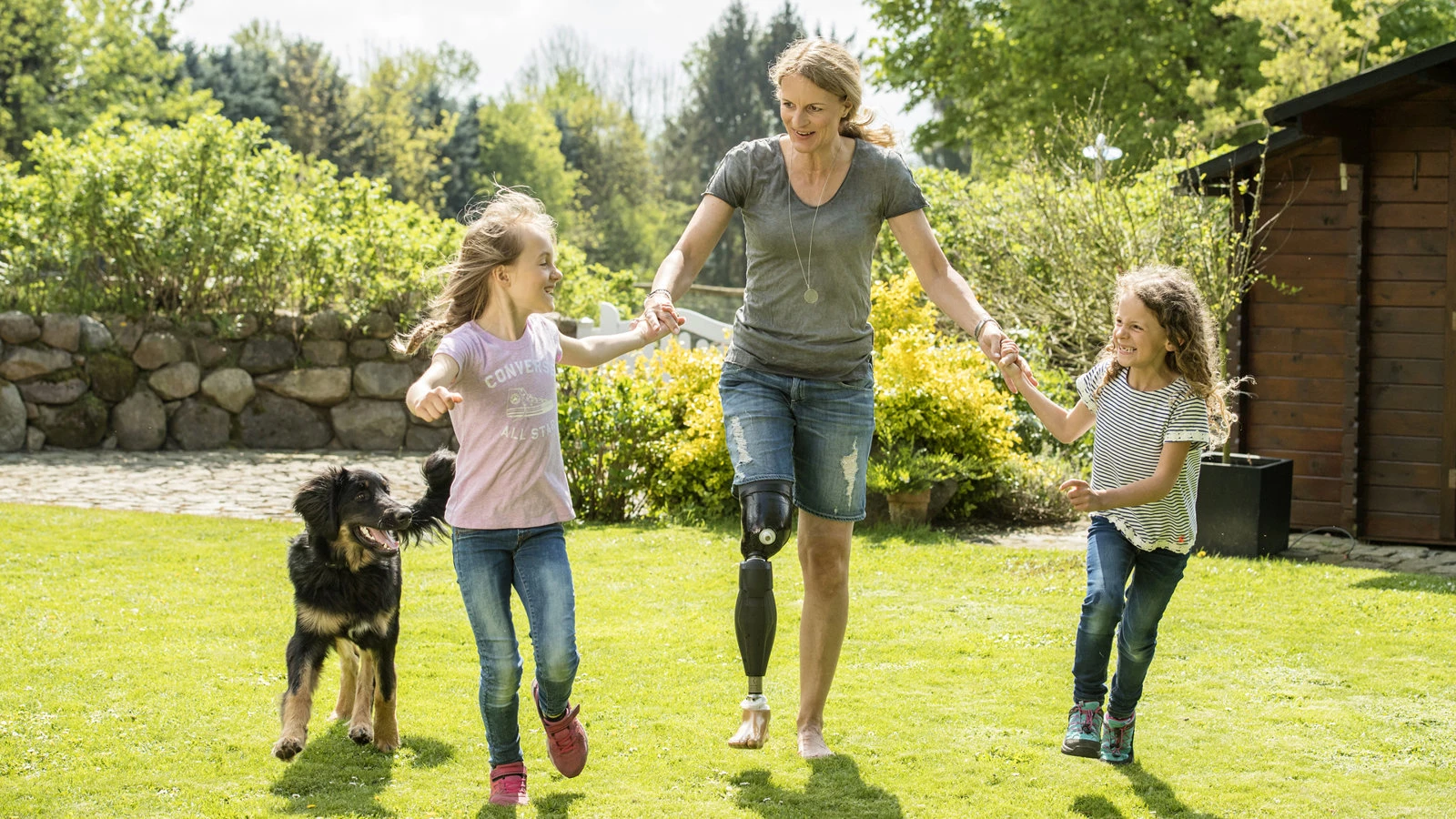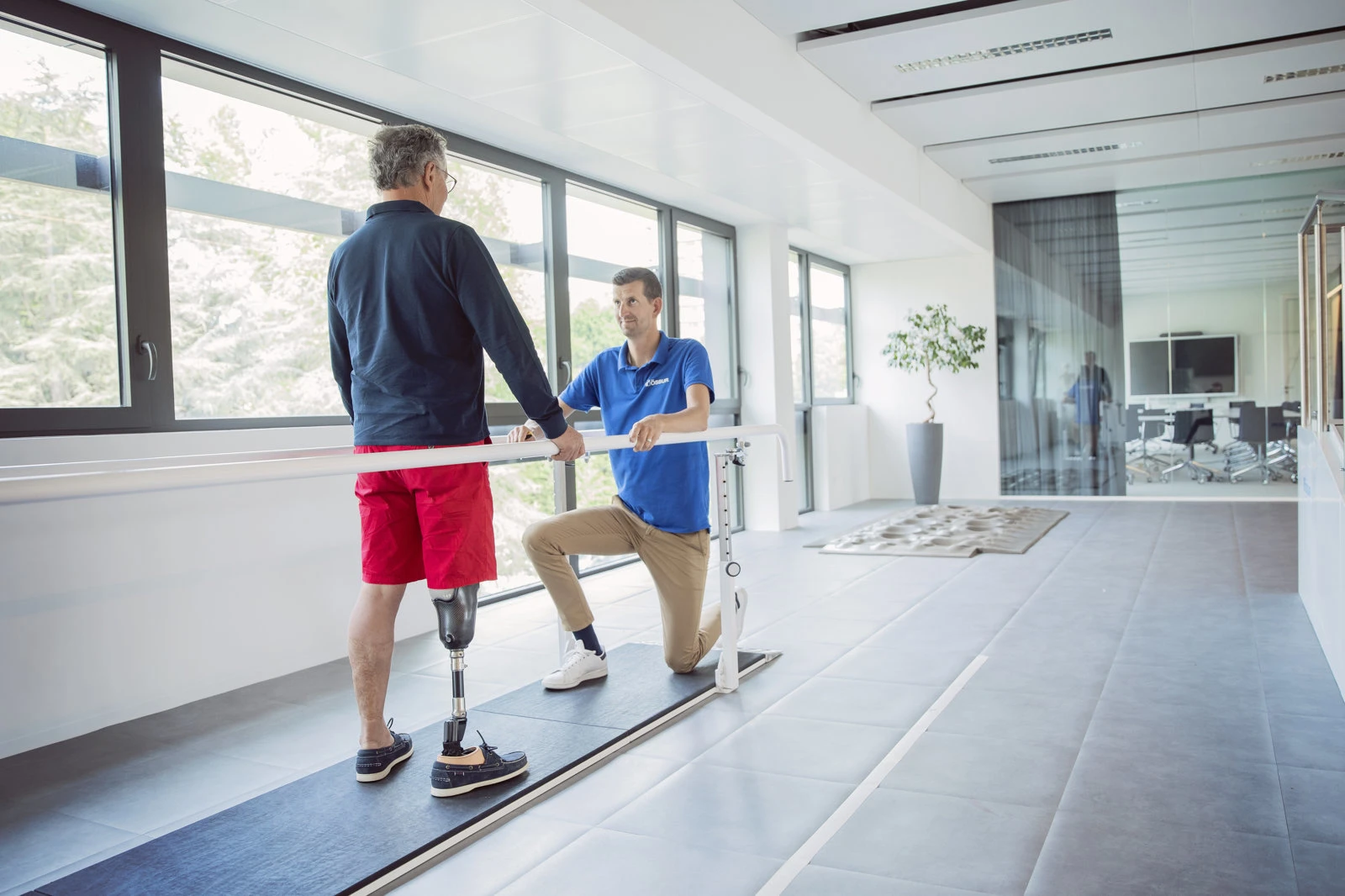Why choose the Amputee Care Center by Spronken?
Spronken Orthopaedics is a - in the Netherlands - SEHM approved prosthetic supplier. We work with all health insurers in the Netherlands. Spronken Orthopedie Nederland has more than 60 years of experience in fitting and delivering arm prostheses and leg prostheses.
We make arm prostheses and leg prostheses and offer a wide and brand-independent range of prosthetic components, which enables us to select what best suits each individual patient worldwide. We fully customise every leg prosthesis with MCK.
Our team of prosthesis experts has in-depth knowledge of microprocessor-controlled knee replacements. We accompany leg prosthesis users step by step with a total concept, including free gait analysis, MCK knee fitting, intensive follow-up and aftercare.
Specialised Prosthesis Centre for Benelux prosthesis wearers
We are present in several locations in the Netherlands and have our own branch in Beek (South Limburg) and Tiel (Gelderland). The main workshop of our specialised prosthetic centre is strategically located in Genk, at the Drielandenpunt - where Belgium, the Netherlands and Germany meet. This unique location enables us to provide specialised and cross-border care and be accessible to a wide international audience.
Thanks in part to our branches in the Netherlands and accredited Dutch prosthetists, we can collaborate with healthcare providers and insurers from the Netherlands. Moreover, our approach is perfectly in line with European standards of care, which makes our BeNeLux centre ideal for those looking for high-quality, accessible and specialised prosthetic care regardless of national borders.
Why many Dutch people choose a BeNeLux centre
More and more Dutch people are choosing to have their arm or leg prostheses measured and made at a specialised BeNeLux centre, for example just across the border in Belgium. This choice is rarely accidental - there are several clear advantages that make this step attractive:
Access to specialised, cross-border expertise
Specialised prosthesis centres - like the Amputee Care Center by Spronken - benefit from economies of scale and knowledge sharing between countries. This allows them to specialise more strongly in complex arm and leg prostheses such as bionic arms, sports prostheses or prostheses for high-activity users. Belgian centres often have experience with patients from both the Netherlands and France, allowing them to respond quickly to different needs, technical requirements and more favourable prices. The Amputee Care Center is thus a focus centre for specialised prosthetic care.
Short waiting lists and personal approach
In Belgium, waiting lists for fitting and delivery of an orthosis or prosthesis are generally shorter than in the Netherlands. Also, more time is often allowed for a comprehensive intake and individual fitting. For people who value speed and personal follow-up, this is a decisive factor.
Sometimes cheaper for self-payers or with limited reimbursement
In case of non-contracted care or limited reimbursement in the Netherlands (e.g. cosmetic options or upgrades outside the basic insurance), choosing a prosthetic centre in Belgium may be more advantageous. Belgian centres are transparent about costs, and in some cases rates are lower. This is especially relevant for clients who have to pay partly themselves or opt for a more expensive or high-tech solution.
More flexibility and innovation in supply
With a slightly less tightly regulated care system and more customisation options, independent centres - such as the Amputee Care Center by Spronken - sometimes have more room to offer innovative solutions. Think modular arm prostheses, design options, quick access to trial models and options from a wide range of global brands of prosthetic components. Internationally oriented companies sometimes develop high-tech prostheses at lower costs than traditional manufacturers.
Ready to take the next step MCK electronically controlled?
Wondering if a microprocessor knee could make a difference for you too? Or would you like advice on switching to a more advanced prosthesis? Then make an appointment today for a free introductory consultation or a free gait analysis at Amputee Care Center by Spronken.
We will listen to your story, analyse your mobility and give you honest, clear and non-binding advice tailored to your needs.





